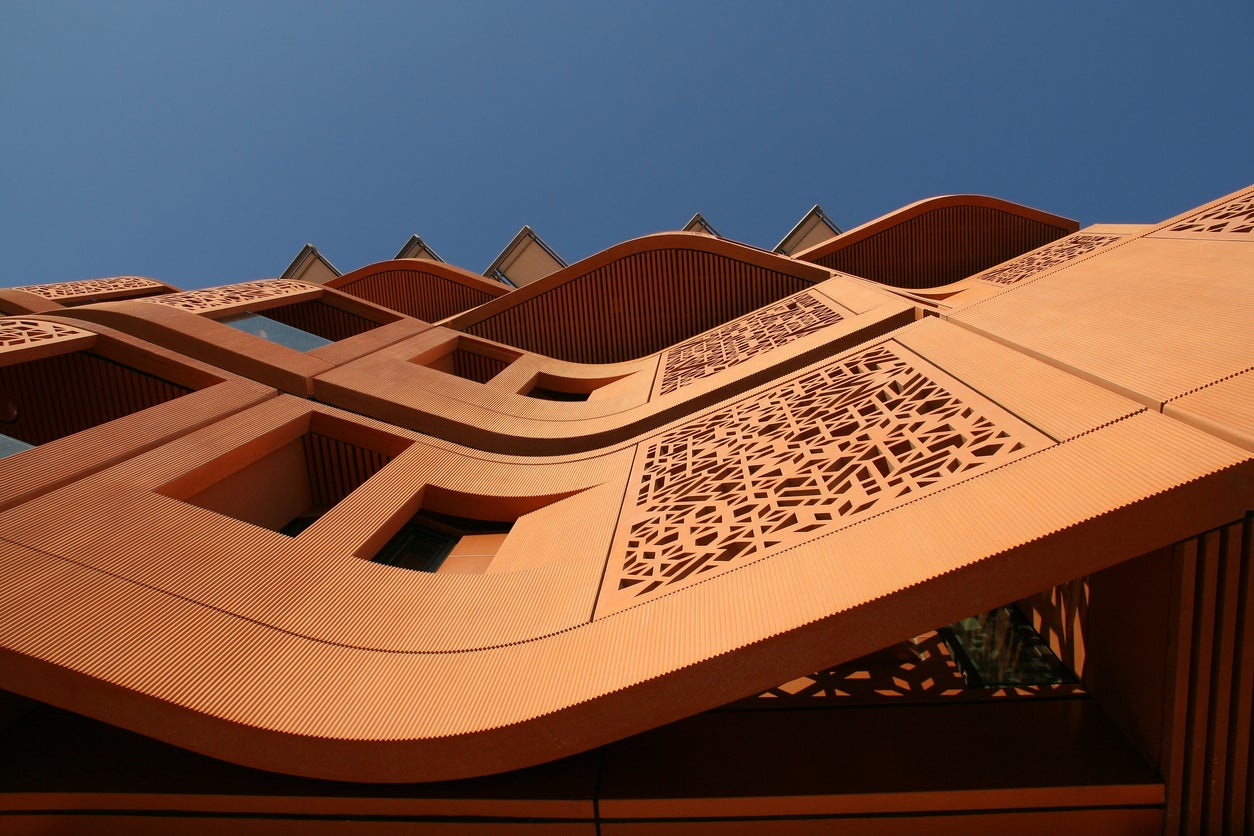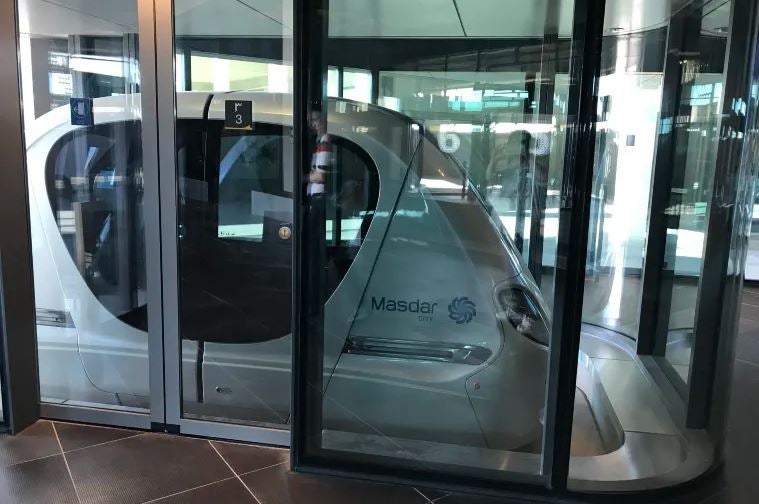Welcome to United Arab Emirates’ ‘City of Future’, the world’s first zero-carbon city
The words ‘sustainable’ and ‘UAE’ rarely go hand-in-hand, but all that could be about to change with the Gulf’s latest tourist attraction, writes Rahma Khan

Your support helps us to tell the story
From reproductive rights to climate change to Big Tech, The Independent is on the ground when the story is developing. Whether it's investigating the financials of Elon Musk's pro-Trump PAC or producing our latest documentary, 'The A Word', which shines a light on the American women fighting for reproductive rights, we know how important it is to parse out the facts from the messaging.
At such a critical moment in US history, we need reporters on the ground. Your donation allows us to keep sending journalists to speak to both sides of the story.
The Independent is trusted by Americans across the entire political spectrum. And unlike many other quality news outlets, we choose not to lock Americans out of our reporting and analysis with paywalls. We believe quality journalism should be available to everyone, paid for by those who can afford it.
Your support makes all the difference.Home to the tallest building on earth and rapidly growing mega-cities, the United Arab Emirates is notorious for being one of the top contributors of carbon emissions in the world. But there’s another side to this Middle Eastern country of superlatives: with heavy reliance on the tourism sector to grease the country’s economic wheels, the UAE government has created a new avenue to attract visitors by building the world’s first-ever zero-carbon city.
The decision to build a sustainable city, named “The City of Future”, is either a humble attempt of the government to contribute towards a greener planet, or just a brilliant experiment to try and brush off the tag of the world’s top polluter.
Situated just 10 minutes’ drive from Abu Dhabi International airport and 40 minutes from Dubai, “The City of Future”, also known as Masdar City, is built on the philosophy of economic, social and environmental sustainability. It aims to promote a greener lifestyle by applying real-world solutions of energy and water efficiency, zero-carbon transport and reduced waste generation.

It’s an ambitious project, spearheaded by the UAE government in partnership with a subsidiary of the Mubadala Development Company and initiated in 2006. It was originally due to be completed by 2016 but, following a series of planning failures and global economic transitions, the completion date has now been pushed to 2030. But though unfinished, a significant portion of the city – including residential complexes, offices, a convention centre and a wind tower – is already open for business.
A full-day tour of Masdar City shows tourists its 500 eco-friendly residential units, powered entirely by renewable energy. Electrical power is produced from the city’s onsite 10 megawatt (MW) solar energy panels. Spread across a 22-hectare site, it’s the largest grid connection solar facility in the Middle East. Visitors are also educated about the efficient water control system installed at all facilities in Masdar City: every building is equipped with extractors that take humidity from the air and convert it into water to be used throughout the city. Water-efficient sinks in all residential units also control water flow, preventing wastage.
The city has gone all out when it comes to promoting green mobility: cars are banned with the exception of electric cars. Instead, Personal Rapid Transit (PRT) stations are used for transportation within Masdar. Visitors are required to leave their vehicles in the parking lot at the entrance of the city and use the sustainable transport system to commute in and around. PRT stations have sci-fi worthy on-demand mini-pods: these automated electrical single cabin vehicles act as driverless taxis, featuring a touch screen to control the journey and running along PRT-only tunnels built beneath street level. Electric buggies and bicycles are also permitted, plus the infrastructure of the city is designed to encourage walking, with well-planned and wide pavements throughout – a rarity in the Gulf nations.
One of the most prominent examples of sustainability in Masdar City is the Masdar Institute of Science and Technology campus. The entire complex is built on the principles of renewable energy; the most iconic building on campus is the oval-shaped Knowledge Centre building, designed to capitalise on photovoltaic energy harvesting (harvesting energy from light, in laymen’s terms). Meanwhile, the inclined PV panels on the roof help stop direct sunlight from causing the building to overheat.
It’s either a humble attempt of the government to contribute towards a greener planet, or just a brilliant experiment to try and brush off the tag of the world’s top polluter
Elsewhere in the city, the Wind Tower takes inspiration from traditional natural cooling mechanisms used in Middle Eastern architecture, with tall cylinders that take the air inside from the top to the central portion, where it cools down, before being released again. Visitors can walk under the giant cylinders to experience the plunge in temperature for themselves.
Tourists can currently only explore the city on a day trip from Sunday to Thursday, as no hotels have been constructed yet. But there are plenty of eateries and cafes to complement a day of sustainable wanderings: Marl’s Organic is a top spot, with its homegrown Middle Eastern and continental menus (including its perennially popular fresh green mojitos). And Kababji Grill, one of the oldest Lebanese restaurants in the UAE, recently opened a branch here too.

The Masdar City development has, perhaps unsurprisingly, faced a few roadblocks since the pandemic. For one thing, the UAE government is still struggling to persuade Emiratis to move there – in spite of campaigns such as the promise of a lifetime delivery of organic fruit and vegetables for anyone who buys a property. But, while the probability of Masdar City ever becoming fully inhabited remains a question mark, this City of Future could have the potential to become the country’s top tourist magnet, as responsible travellers increasingly prioritise eco-credentials over cheap thrills.

Join our commenting forum
Join thought-provoking conversations, follow other Independent readers and see their replies
Comments